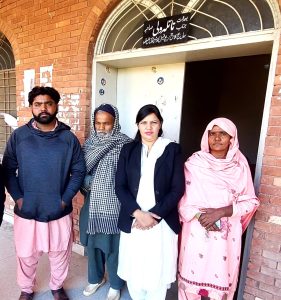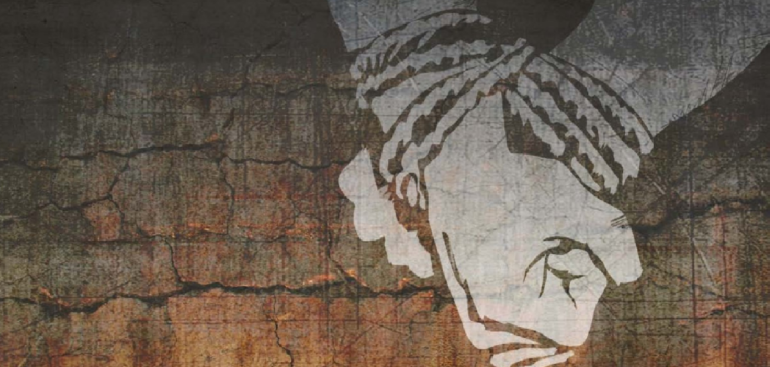A court in Pakistan has denied a Christian victim of a fraudulent conversion from changing the religious designation of Islam and the Muslim name that his employers had illicitly registered on his National Identity Card, sources report.
In a verdict issued on May 18, Pattoki Civil Judge Mian Usman Tariq stated, “Islam teaches that everyone is born Muslim, but parents and society cause deviations from the straight path. Therefore, when someone accepts Islam, they are considered to revert to their original state. Nevertheless, Islam prohibits the use of force in conversions.” The ruling was on a petition filed by Christian brick kiln laborer Sufyan Masih, 24.
Attorney Sumera Shafique filed Masih’s petition in September 2022 after officials at the National Database & Registration Authority (NADRA) in Pattoki Tehsil, Kasur District, Punjab Province, refused to correct his religious designation to Christianity and change his name from Muhammad Sufyan to Sufyan Masih.
Shafique recounted that Masih’s family had sought her assistance in 2020 to recover him from the illegal custody of his employer, Asif Ali, a Muslim brick kiln owner.
Attorney Sumera Shafique said that Ali had refused to return Masih to his family, claiming that the boy had converted to Islam and that he had adopted him as his son. “I filed a petition for his recovery and reunited him with his parents.”
When Masih’s family applied for his national identity card, NADRA officials informed them that his name was already registered in the national database as Muhammad Sufyan. “Upon investigation, it was revealed that the kiln owner had obtained Sufyan’s identity card in 2018, listing him as a Muslim, presumably to prevent any attempts by his parents to recover him,” Shafique explained.
Sufyan disclosed that a NADRA mobile van had visited the kiln during a campaign to issue computerized identity cards to kiln workers. His employer had fraudulently secured his thumbprints on the registration form and taken his photograph. Shafique noted that Masih and his family, including his parents and siblings, were illiterate and unable to read or understand the form.
“When NADRA officials informed Sufyan’s parents that his name and religion could not be changed, Sufyan firmly declared that he was a Christian and that the information on the form was entered without his knowledge,” she said. “Despite this, NADRA officials refused to accept his claim and dismissed them.”
Attorney Shafique stated that during the proceedings, she presented documentary evidence, including Sufyan’s baptism certificate, and brought Masih’s Christian parents to court to attest to his Christian upbringing. “Most importantly, Masih himself testified that he continued to practice his Christian faith and was not a Muslim,” she added.

Despite several notices, the Muslim cleric who allegedly issued Masih’s conversion certificate failed to appear in court. “The bailiff reported that the cleric could not be located and that the seminary mentioned on the conversion certificate had also disappeared,” Shafique said. “This was clear proof of the malicious intent behind the alleged religious conversion, yet the court chose to ignore it.”
The attorney informed the court that NADRA had violated its policy by failing to obtain the mandatory undertaking from the applicant when registering his alleged new religion. She emphasized that Masih’s parents are Christian, as clearly stated in their official records.
“When Masih’s National Identity Card (NIC) was created by his Muslim employers, NADRA officials should have required the mandatory undertaking related to religious conversion instead of relying solely on the fraudulent certificate,” she argued. “Masih was barely an adult at the time and had no understanding of what was being done to him. NADRA officials should have exercised greater diligence.”
According to NADRA’s CNIC (Computerised National Identity Card) registration policy, any error by applicants in stating their religion correctly due to illiteracy “may be handled in office fault category.” However, in Masih’s case, NADRA claimed that his name and religion could not be changed because he had allegedly verified his religion as Islam on the official form at the time of registration. NADRA maintained that, according to official policy, a Muslim cannot change his religious designation on the CNIC to any other religion, whereas individuals who convert to Islam from other faiths can have their CNICs amended.
Apostasy is considered a sin punishable by death under most schools of Islamic jurisprudence. Although Pakistan does not have a specific law denying Muslims the right to change their religion, apostasy can be punished under Section 295-A of the country’s blasphemy statutes, which imposes up to two years of imprisonment for “outraging the religious feelings of any class of citizens.”
Attorney Sumera Shafique stated that freedom of religion or belief is recognized by numerous human rights instruments to which Pakistan is a signatory. She highlighted that Article 18 of the Universal Declaration on Human Rights guarantees freedom of religion for everyone, including the freedom to change religion and the right to practice it publicly or privately. Additionally, Pakistan has ratified the International Covenant on Civil and Political Rights, which ensures that no individual can be prevented from adhering to the religion or faith of their choice.
Shafique emphasized that Article 20 of Pakistan’s constitution also grants citizens the right to profess, practice, and propagate their religion. “Masih’s case demonstrates how this fundamental right is being denied to non-Muslims,” she remarked.
The attorney announced her intention to challenge the civil judge’s decision in the appellate court. “Our case is very strong, and I was hopeful for a positive decision,” she said. “However, it seems the judge was not willing to face pressure from religious groups and deferred the responsibility to his superiors.”
